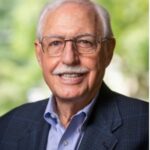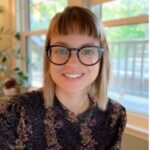The Power of Youth Development Programs: Lessons from the 4-H Study of Positive Youth Development
The Melissa Institute Announces 29th Annual Conference: The Social Media Challenge – Research-Based Strategies to Protect Minds and Strengthen Communities
April 9, 2025Join us on May 16th, 2025 at 12:00pm-2pm EST
When:
Friday, May 16th, 2025
12:00pm-2pm Eastern
Where:
Zoom
Registration:
For Continuing Education: $35
Free general registration
Register Here:
Following registration, you will be sent the zoom link.
Continuing Education Registration:
For payment for CEs:
About:
When Positive Youth Development (PYD), defined as Competence, Confidence, Connection, Caring, and Character, is promoted by youth development programs, young people contribute positively to their communities and, by the end of high school, become active and engaged citizens. The webinar, The Power of Youth Development Programs: Lessons from the Reconnection and Replication of the 4-H Study of Positive Youth Development, explores the history of the Positive Youth Development (PYD) perspective and provides an overview of the Five Cs model of PYD.
The presentation will also share findings and implications from the 4-H Study of PYD (2002-2012) and the Reconnection and Replication of the 4-H Study of PYD. This recent two-part study aimed to extend and replicate the original research. The Reconnection and Replication study reconnected with participants from the initial study, now young adults, to learn about their work activities, health and well-being, and especially their contributions to family, community, and the nation, as well as their civic engagement. Additionally, to extend the youth development leadership of 4-H programs to the current generation of American youth, a small replication was conducted with current 4-H participants.
Learning Objectives:
- Participants will be able to describe the Five Cs of Positive Youth Development.
- Participants will be able to identify the requirements of settings and curriculum needed for programs to support positive youth development
- Participants will be able to identify at least three evidence-based practices for promoting character, caring, connection, confidence, competence, and contribution among youth.
Supplementary Materials:
The following supplementary materials cover the final report of the Reconnection and Replication of the 4-H Study of PYD

Richard M. Lerner, Ph.D.
Richard M. Lerner, Ph.D., is the Bergstrom Chair in Applied Developmental Science and the Director of the Institute for Applied Research in Youth Development at Tufts University. Lerner is known for his theoretical work on the mutually influential relations between individuals and their settings, as the fundamental basis of life-span human development, and for his use of this approach to developmental theory to describe, explain, and optimize the relations between adolescents and their peers, families, schools, and communities. His work integrates the study of family, school, and community-based programs in the promotion of positive youth development and youth contributions to civil society.

Jacqueline V. Lerner, Ph.D.
Jacqueline V. Lerner, Ph.D., is a Professor of Applied Developmental and Educational Psychology in the Lynch School of Education and Human Development at Boston College. She studies the development of character among youth, and the positive development of children, adolescents, and young adults in the contexts of family, school and community, and the embedded relationships in these contexts that contribute to overall development. She has extended her work in the US to international contexts. She has co-directed several longitudinal investigations of youth development both in the United States internationally (The 4 H Study of Positive Youth Development 2000-2012; The Connecting Adolescent Beliefs and Behaviors Study 2014-2017; The 4-H Study of Positive Youth Development: Reconnection and Replication 2019-2023; The Compassion International Study of Positive Youth Development 2016-2025).

Mary H. Buckingham, Ph.D.
Mary H. Buckingham, Ph.D., earned her Ph.D. in Child Study and Human Development from Tufts University in 2019. She is currently a research assistant professor at the Institute for Applied Research in Youth Development at Tufts University. Her research focuses on positive youth development and, in particular, on the development of empathy. In collaboration with Dr. Richard Lerner and Dr. Jaqueline Lerner from Boston College, Mary is the project director of the Reconnection and Replication of the 4-H Study of Positive Youth Development. This project aimed to extend and replicate the 4-H Study of Positive Youth Development (2002-2012).
CE BROKER COURSE: 20-1296369 (2 Credits)
- All CEs require additional CE requests during registration located on our website, a $35 fee, and an evaluation form returned to us following the training.
Continuing Education (CE) information:
- PSYCHOLOGISTS: The Melissa Institute is approved by the Florida Board of Psychology and by the American Psychological Association to sponsor 6 continuing education credits for Psychologists. The Melissa Institute maintains responsibility for this program and its content.
- SCHOOL PSYCHOLOGISTS: The Melissa Institute has been approved by the Florida Board of School Psychology and approved by (NASP), the National Association of School Psychologists to sponsor 6 continuing education credits for School Psychologists.
- FLORIDA BOARD OF CLINICAL SOCIAL WORK, MARRIAGE AND FAMILY THERAPY AND MENTAL HEALTH COUNSELING: The Melissa Institute has been approved by the Florida Board of Psychology and the Florida Board of Clinical Social Work, Marriage and Family Therapy and Mental Health Counseling to sponsor 6 continuing education credits for mental health professionals including LCSW, LMHC, and LMFT.
*Upon request, The Melissa Institute will provide a certificate of completion that can be self-reported to other state boards. We cannot guarantee that it will be accepted by other boards for approval.
IMPORTANT DISCLOSURE: None of the planners and presenters for this educational activity have relevant financial relationship(s)* to disclose with ineligible companies* whose primary business is producing, marketing, selling, re-selling, or distributing healthcare products used by or on patients.
*Financial relationships are relevant if the educational content an individual can control is related to the business lines or products of the ineligible company.
